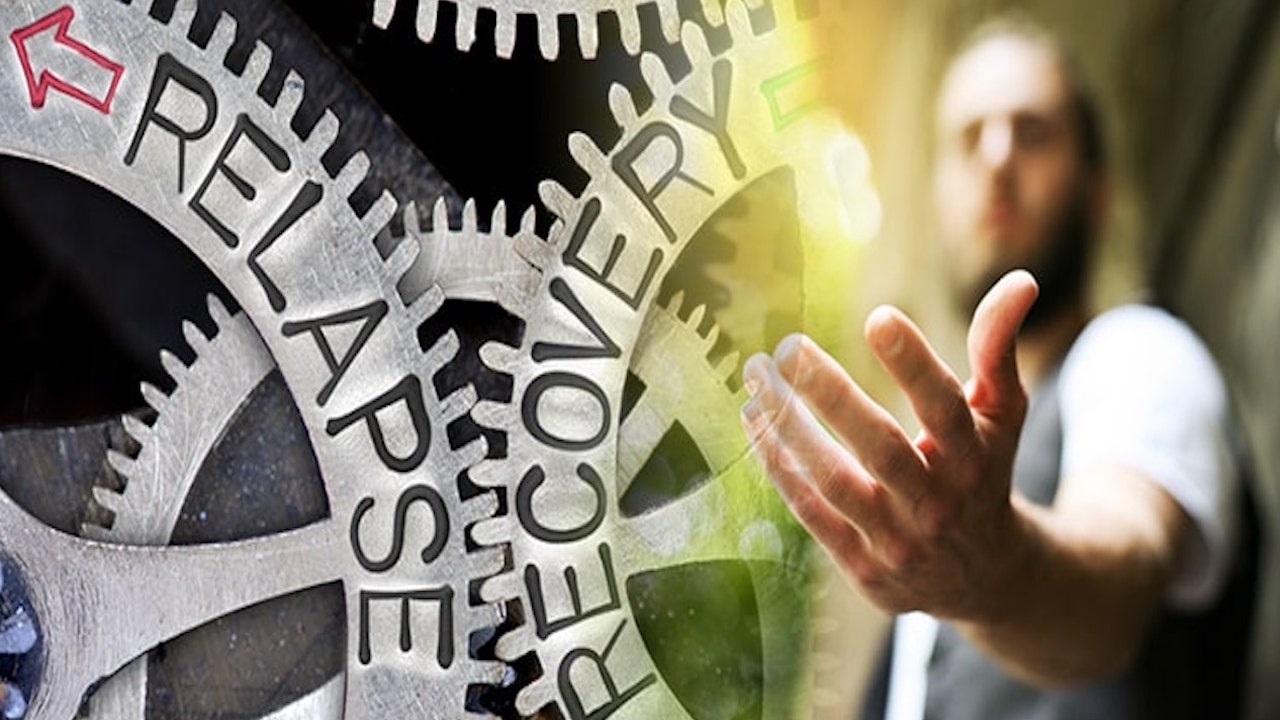Her daughter is involved with a man who may be sabotaging her efforts to stop using substances. But she’s expressed some readiness to get help, and mom wants to support her in any way that she can. Mom’s working on ignoring the “bad-news” boyfriend while setting up guidelines for her return home. She needs guidance on the details…Allies in Recovery weighs in with some CRAFT-based tips.
“My 20 y.o. daughter is in active addiction again (heroin, oxys, stimulants). She relapsed after completing treatment out-of-state this fall/winter. I was especially hopeful this time as she had entered sober living, away from home and all its triggers.
When she returned in January, she tried to reconnect with SUD IOP* and meetings. But she also started spending time with a young man who has been using IV heroin for several years. She thought she could help him; but instead of him leaning into her world, she fell hard into his. Soon there were familiar behavior patterns, positive UAs, and paraphernalia in her living space (boxes of syringes, tie offs, alcohol wipes, metal bowls, etc.). I tossed everything, cleaned the space, and carefully/lovingly packed her belongings in boxes. Then I texted her to express sadness that the ADU* on my property wasn’t yet supporting recovery, despite several attempts.
She decided to “get back on track.” Upon discharging from detox — inducted on Suboxone — we met over coffee and pastries and discussed a post-detox plan. I had 3 requests:
- Attend DBT eating d/o IOP* — this would be her “job and school” for 3 months.
- During DBT, get quality sleep at home — no overnight guests, no overnights at boyfriend’s.
- Connect with the recovery community in whatever way is meaningful to her.
She agreed. But she couldn’t set boundaries around the relationship. She continued to spend time at boyfriend’s house — sneaking out in the middle of the night, not waking in time for DBT. She also opted to get a job at a cafe, instead of prioritizing her DBT* program. (Boyfriend doesn’t work; they have no money.) And she failed another UA.
I provide this context because she is expressing a desire to move back home and get detox/MAT again. She is growing tired of living at boyfriend’s house and is worried about how she’ll manage a shift at the cafe when she’s using and/or dopesick. (She has been struggling to manage during training sessions.)
In short, I don’t know how she can sustain recovery as long as she’s in this relationship. CRAFT says not to focus on a loved one’s partner — it drives a wedge, and ultimately causes the loved one to defend the partner/relationship. But it’s difficult to imagine how she can move forward when she’s intimately involved with someone who is using.
She’s using pressed pills (fake Oxys) now too — the ones that have fentanyl in them. There is a sense of urgency for her to get treatment, and I want to help her. MAT could be life-saving, if she can stay with it this time. But I can’t quite envision this while she continues to see boyfriend. He uses daily to stave off severe w/d, and has no plans to make changes. Not yet anyway.
If she asks me for help to access detox/MAT, do I allow her to move back home with the same post-detox plan as before? Or is there something I can/should add to it? Or do I suggest sober living? I need some guidance.
[The above question originally appeared in the Allies in Recovery “Pose a Question” blog for members]
ACRONYM DIRECTORY:
- IOP = Intensive Outpatient Program
- ADU = Alcohol Drug Unit (residential program)
- MAT = Medication Assisted Treatment
- UA = Urinalysis/Drug Testing Screen
- SUD = Substance Use Disorder
- DBT = Dialectical Behavior Therapy
- CRAFT = Community Reinforcement and Family Training – what we teach at Allies in Recovery.
Your daughter is again cycling through a recurrence of use (relapse) after leaving treatment out of state. This time, she has started seeing and using with a young man she met who heavily uses opioids. You are wondering what to do about the recurrence, the boyfriend, her request to come back home, and the details of possible conditions. You know she needs significant support around the eating disorder, and see this as being perhaps on top of her list of problems to resolve.
Keep focus on the substance use, not on the boyfriend who uses
It’s not so much that CRAFT suggests you ignore the boyfriend. This suggestion is based on our experience working with parents whose kids are involved with people with addiction. If you focus on the need for the boyfriend to go, and say so, your daughter will push back, argue about her rights, and so on. The focus comes off the addiction and the eating disorder and on her “right” to have a boyfriend. She hangs on more tightly.
What a long hard road. Each time your daughter has a recurrence of use (relapses), you set up anew. You research what can be offered as help. You are ready to move mountains to help your daughter despite limited resources. Your tenacity has helped her get the support she needs in the past. She’s back in the cycle of use again. But your efforts are not in vain. And you have learned a great deal with each and every step of the way.
Your loved one is communicating with you – good!
Your daughter is talking to you. She is motivated to do certain things. This is encouraging. But the boyfriend is clearly bad news right now. These drug-saturated relationships can so entangle the situation. Perhaps she is ready to stop using and he decides to come home that evening with drugs. It can be extremely hard to embark again on non-use with a using partner in this type of scenario. Motivations are always shifting with drug addiction and are rarely in sync with two people involved.
You set some conditions for coming home to live – good. Now add MAT.
You are sounding like an old hand at this. The conditions you placed on your daughter for coming home after this latest recurrence are excellent. I would definitely add MAT: even consider methadone if your daughter is unable to properly dose herself with Suboxone. She is in real danger of overdosing. Also, it’s worth noting that taking opioids may be linked to your daughter’s eating disorder. You eat less on these drugs, and at times you vomit, and so you lose weight. Many drugs also curb the appetite.
You have been through several recurrences with your daughter. Each time you are there to help her back up on her feet. This is so CRAFT-y of you. So, yes, keep this up. I’d suggest offering her the same conditions for coming home plus MAT. The eating disorder is what she is most motivated to work on. The DBT (Dialectical Behavioral Therapy) will help with this and the drug use.
Her getting a job is a plus and a minus right now
The job forces her to show up (as best she can) and puts non-using people in her life. It also, unfortunately, puts money in her pocket. You are in a unique position to allow her back in your home with a chance to revisit and refocus on the plan you made together over coffee. Can you frame this so that the help with eating disorder/ DBT is her job – essentially saying that it’s more important to have accountability for this work before trying to hold a job down at this point. Gaining traction with this work may help lay more solid ground for recovery efforts going forward.
She does sounds ambivalent about the job. If she’s committing to engaging in other supports, the job would no longer be the only source of social connection. Perhaps you feel it out and go with your instincts. There are definitely pros and cons to this one. Rather than put your foot down about the job vs. DBT/ eating program, try to keep the conversation open about that and aim to candidly share thoughts with one other about the relative benefits of keeping it right now.
She’s making progress. Try the daybed/footlocker arrangement at home for now
It is maddening to see how this relationship has dragged her back into a world she worked so hard to get out of. What an incredible pull these drugs have. But she has done significant work in the past year, and it has been an education for her in what is out there – as well as what is within her. She has made moves to help herself before. She needs a lot more practice with this, but with the right support networks, that can become her focus.
We encourage you to set up again. Provide your daughter with the services she can access and the invitation to stay in your home. Perhaps you limit her space in your home to the “daybed and footlocker” setup. If she sees the boyfriend, grit your teeth. If she sneaks out, oversleeps, misses treatment, etc. so be it. You can’t police this. In an earlier comment you mentioned that putting her in a common space was not possible because of her younger brother. Space is tight. Is it possible to get your two children in a family meeting with a therapist? Is it possible to get your son some additional support and provide your daughter minimal private space?
Try allowing her to be home; but it might not work
If she starts circumventing your deal once she’d back at home, it will become apparent that your home may not be right for her while also being too stressful for you. You are wonderful to consider having her home again, despite the difficulties. The virus causes a huge layer of additional thinking for everyone. It also makes it hard to be as flexible with your home as a reward.
The best way to get rid of the boyfriend is not to address it, but to continue to engage your daughter in treatments. It is treatment and self-reflection that begins the transition to wanting a healthier life. It is the desire for a healthier life that will help your daughter make better choices.
Any healthy choice she makes can help lead toward better choices
Those choices can be on a micro and macro level. But whatever the changes are that she can handle at first, any healthy choice tends to build momentum towards making better choices in general. Whether she chooses to end things with the boyfriend sooner or later, you want to do anything you can do to support healthier choices right now. They may not be the ones you’d choose first, but you want to position yourself in such a way that you can support even the slightest desire for a healthier life.
She will need to reckon with her choice of partners: valuing herself
Understanding the patterns and nature of her partnerships is something she will inevitably have to reckon with along her path to recovery. You have done a heroic job – practicing CRAFT in general, and in choosing not to interfere with her relationships. This has helped build trust between you and you have been able to reach her on many occasions because of this trust. As you continue to take a CRAFT approach, and strengthen that bridge you have so painstakingly built, she will have space to find more moments of valuing herself, of desiring something better for life.
You built the bridge, and you have open communication. Brava!
Your commitment to working in partnership with her provides her a model of what a true partnership is built from. It’s a blessing that she knows you are there for her.
As you have seen, there are limits of what can be done for your daughter. But the openness of the communication you have cultivated with her is a blessing. She is sharing her life with you, telling you what is going on with her. Through these openings, you set up what you can to help her. You also let her experience the consequences of the choices she is making. This is the hardest part, but you have showed so much strength and compassion with this in the past.
Remember to practice self-care
To continue along this path, you know self-care must be at the forefront. This, too, is a key component of doing CRAFT. We like to say, you can better help your loved one if you are doing well.
To hold all that you are holding, it is essential to show yourself the greatest level of love, kindness and understanding that you can muster. You deserve your own well-being and any moment of peace and relaxation you are able to find. Make sure you are tending to yourself and your needs however you can. Visit our “sanctuary” section on AlliesinRecovery.net for some relief, and come to our weekly CRAFT support group if you need to.
We are grateful that you’ve shared all of this – I know it is so painful. Thank you, for being on the site, for communicating about all of the details. You are helping others as you reach out for help yourself. We thank you and send you all our love and support. Allies in Recovery is always here for you.



